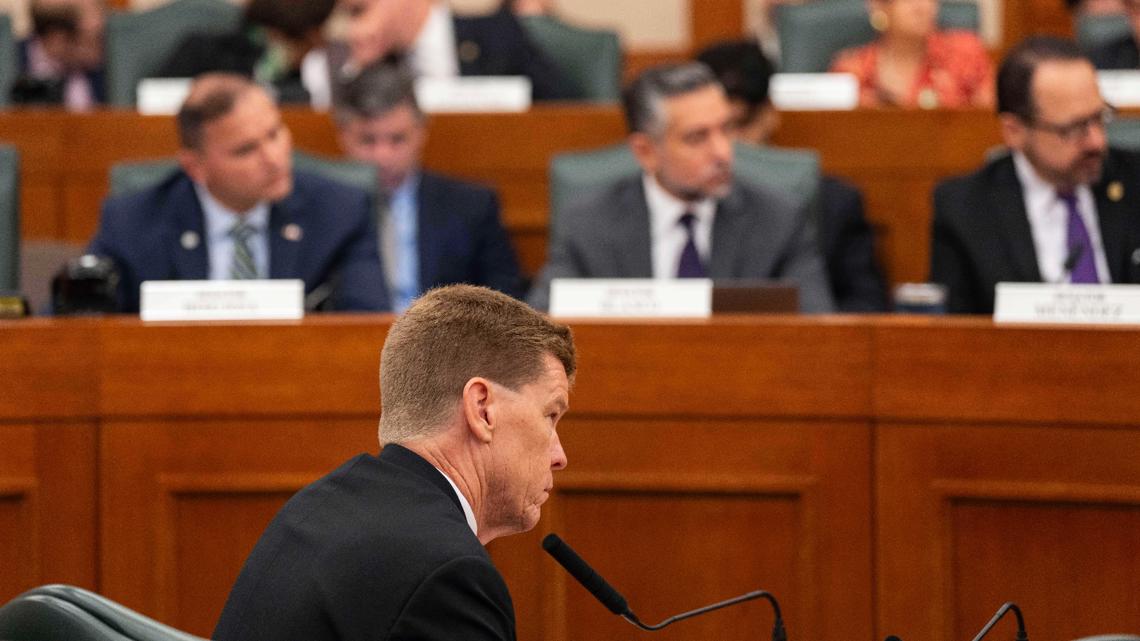
The special session is underway this week, with flooding response and recovery slated to be a primary topic.
AUSTIN, Texas — Texas lawmakers spent Wednesday asking tough questions about the disastrous July Fourth flooding that left at least 135 people dead across two dozen counties, a region stretching from Kerrville to San Angelo.
At least, they asked state officials.
The newly created Disaster Preparedness & Flooding committees in the Texas House of Representatives and the Texas Senate met jointly in Austin to hold hearings. While some lawmakers had anticipated asking questions of local Kerr County officials, it was quickly revealed that wasn’t going to happen.
“We will not hear from local officials representing the areas impacted by the floods this morning. Chairman (Ken) King and I did not want to pull those local officials away from disaster related duties to testify in Austin today. Instead we will hear from those local officials when we convene on July 31 in Kerrville,” Chairman Charles Perry said.
Lawmakers did hear from the Texas departments of emergency management, transportation and public safety, as well as multiple state river authorities.
While the local officials weren’t present, the discussions frequently centered around the need for a local official who serves as the emergency management coordinator. This official, designated by a county judge, would be responsible for tracking weather data and National Weather Service reports and would help coordinate the county’s response to weather events.
More than nine hours into the hearing, lawmakers still seemed unclear on exactly who was serving as the emergency management coordinator for Kerrville or Kerr County.
“It just seems to me, the more I am listening to this today, they really don’t have an emergency coordinated team. They have someone who is designated, that somewhat is checked out on some level. They have, what I can tell, inter-fighting between city and county on those initiatives, that don’t communicate well,” Perry said. “It’s one or two individuals that have a title and don’t know what to do with it. Maybe we will find out when we go on the 31st.”
Lawmakers also found out, however, that officials designated as “emergency management coordinators” are not actually required to have any credentials. Those individuals are selected by either a county judge or a mayor.
Nim Kidd, chief of the Texas Department of Emergency Management (TDEM), told lawmakers there likely needs to be new legislation to make sure those individuals have the skills the county needs.
“There’s no minimum qualifications to be an emergency management coordinator in the state of Texas,” Kidd said. “It’s whoever the county judge or whoever the mayor appoints. We’re better than that.”
It’s a gap that some lawmakers found concerning.
“There’s no qualifications whatsoever, right?” asked Texas Sen. José Menéndez. “That’s a concern.”
Lawmakers also learned more about the situation in Kerr County on July Fourth.
When Kidd arrived in Kerr County that morning, he found out responders were operating out of two independent emergency operations centers for the City of Kerrville and Kerr County instead of one coordinated emergency center.
The county also didn’t have a place to put the state teams coming in. TDEM had to get county responders working out of one central location.
“We encourage them to move to an ad hoc facility quickly that we can get everyone in the same room so that we’re looking at each other eyeball to eyeball and not having to chase each other around rooms or around communities,” Kidd said. “And so we did, we asked them and they complied very well. Again, we’re not in charge. We don’t get to tell them what to do. We’re just responsible, we support them. We asked them, ‘Can you find a facility where we are all in the same room?'”
Additionally, Kidd told lawmakers that, as far as he knew, the county judge never attempted to order any evacuation of any area in the county.
Kidd said ordering an evacuation should always be a county responsibility and the local officials would need to explain why they did or did not make that call.
Chairman Perry said he also found the divided county response unusual.
“I cannot imagine coming into a community where you have a separate EOC for county and city to manage. Somebody needs to be in charge,” Perry said. “For a city that small to be split that way, that to me is unacceptable.”
The committee will meet again in Kerr County on July 31.
